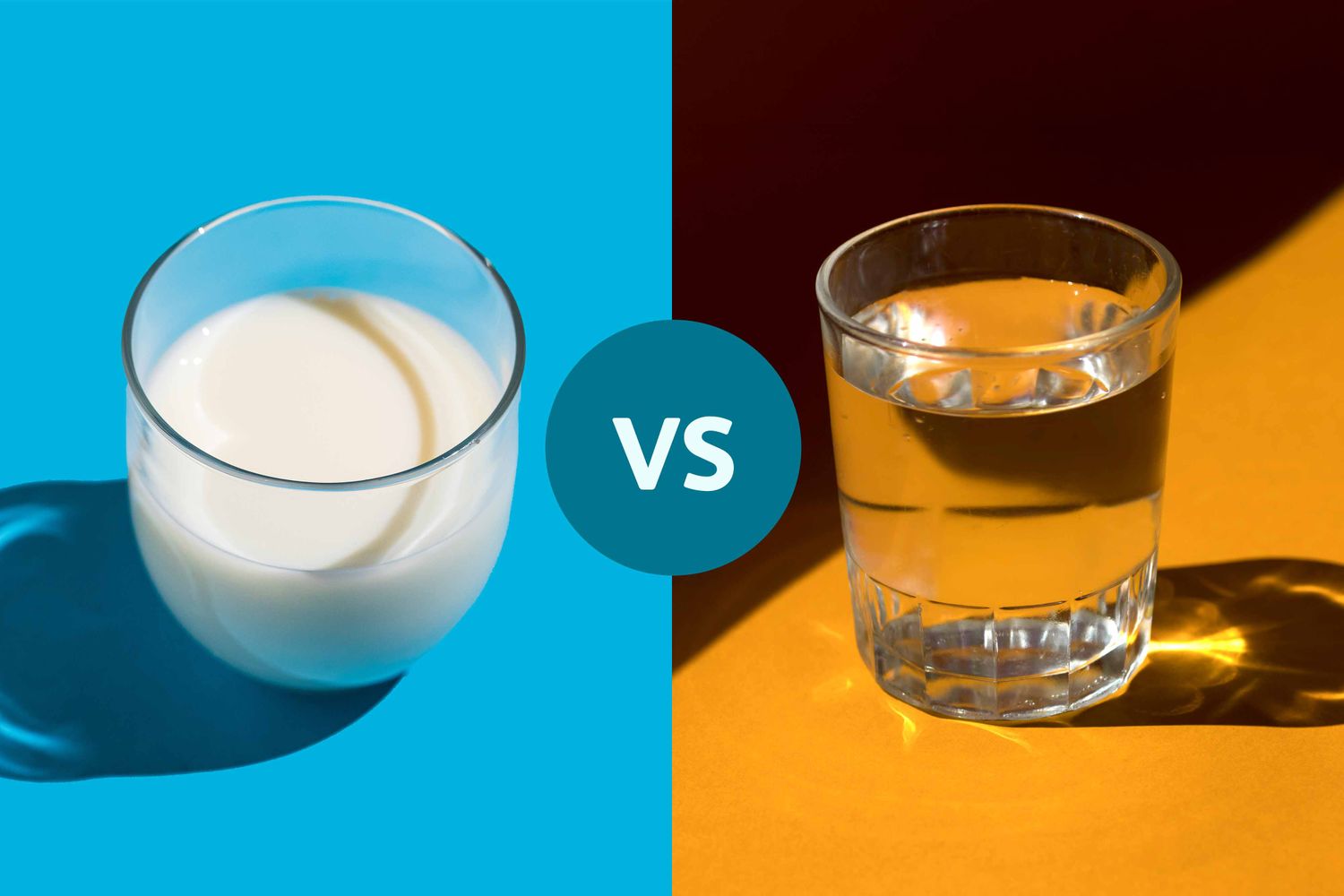Water is usually the no-brainer choice for hydration, but some studies have suggested that milk might actually do a better job.
How Milk Compares to Water for Hydration
You may have seen billboards or dairy ads claiming milk hydrates better than water. While some research supports this idea, the evidence is limited.
The marketing claims are largely based on a few small studies, including one from 2016 published in The American Journal of Clinical Nutrition. In the study:
- The researchers monitored urine output after participants drank still water, sparkling water, full-fat milk, skim milk, cola, a sports drink, coffee, beer, orange juice, oral rehydration solution, or tea.
- The study introduced the beverage hydration index (BHI), a tool designed to compare the “effectiveness of beverages to maintain hydration status.”
- Based on the BHI, milk maintains hydration and fluid balance better than still water, likely due to the macronutrients and electrolytes in dairy.
It is theoretically possible that milk is more hydrating than water, but the data is limited. For practical, everyday use, water is still the best choice, according to Kristin Gustashaw, RDN, LDN, according to an advanced level clinical dietitian at Rush University Medical Center.
“I use milk as a tool to keep people hydrated, but I have yet to suggest milk is better at hydration than water,” Gustashaw told Verywell.
How Milk Supports Muscle Recovery
A 2016 study funded by the National Dairy Council in Ireland found that low-fat milk rehydrated athletes more effectively than water or sports drinks. In addition to replacing fluids, milk also supports muscle protein synthesis and provides micronutrients.
“When someone exercises, they lose fluid and electrolytes, like potassium and sodium. Depending on how vigorous and long the exercise takes, the body’s glycogen stores may become depleted,” Amy Reed, MS, RD, CSP, LD, a Cincinnati, Ohio-based registered dietitian nutritionist and a spokesperson for the Academy of Nutrition and Dietetics, told Verywell in an email.
“The best way to replenish these stores is to take in the proper ratio of carbohydrate and protein. Dairy milk offers the ideal combination,” Reed added.
This is one reason some athletes opt for chocolate milk after a long run or tough workout.
“For normal everyday hydration throughout the day, water would be the best choice,” Reed said.
When to Choose Milk Over Water
Many people have heard that they need eight glasses of water a day. However, the amount you actually need varies depending on your age, activity, level, pregnancy status, and weather.
Some people only need six glasses of fluid per day, while others may need up to 12. At least half of your fluids should come from water, while the rest can come from other beverages that fit your needs, Gustashaw said.
Hydrating foods, water, and beverages like milk all count toward your daily fluid intake. If you choose milk over water, keep in mind that it contains calories and natural sugars.
“If you want to limit caloric intake, even a glass of skim milk, which is the lowest one on the market, is 90 calories per cup,” Gustashaw said.
Milk can be part of a healthy diet. Nutrition guidelines recommend most adults consume three cups of dairy daily, which provides nutrients like calcium, vitamin D, and protein.
How to Maintain Hydration All Day
Milk and water both provide hydration. Regardless of the beverage you choose, make sure to practice proper hydration strategies.
“If we’re trying to prepare for the summer heat or protect our organs, fluid turnover is sometimes more important than an instant in time when I am hydrated. We should be consuming beverages and having water-based things throughout the day, rather than focusing on one portion of the day,” said Brendon P. McDermott, PhD, ATC, FACSM, a professor and director of the Heat & Hydration Optimization (H2O) Lab at the University of Arkansas.
In other words, it is not recommended to chug all of your daily fluids first thing in the morning to avoid dehydration. You should go through a cycle of drinking fluids and urinating throughout the day, he said.
In addition to sipping fluids throughout the day, check in on how you feel. Headache, extreme thirst, dry skin or mouth, and dark urine can indicate dehydration.
“That’s an indication of how well you have been hydrating the last couple of hours, because urine is a bit delayed. But, if urine is dark, you could afford to have a drink, and if your urine is light or clear, you probably don’t need a drink right now,” he added.
Key Takeaways
- While milk may keep you hydrated longer than water in certain situations, especially after intense exercise, water is the best everyday choice for staying hydrated.
- If you include milk as part of your fluid intake, be mindful of its calories and sugar content.
